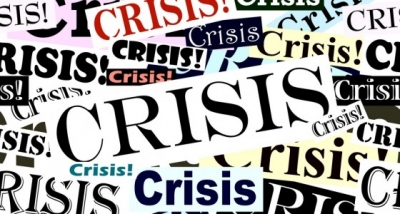For most organisations, it’s not a matter of if they’ll have to manage a crisis on social media, but when. Social media is an increasingly important channel of communication yet still not always included in risk and crisis management plans.
A crisis can start on social media or social media can be used to fuel and accelerate an off-line crisis – causing long-term reputational damage. However, social media can also be used to respond to an issue quickly, before it escalates into a full crisis.
According to a 2013 report, 69% of crises spread internationally within 24 hours. At that speed, your reaction is only as good as your pre-planned crisis strategy.
Here are 5 ways to plan, prepare and hopefully, help you prevent a social media crisis:
1. Integrate social media into your crisis communications strategy
The list of possible crises that an organisation could face is endless. In today’s 24 hours media cycle, people expect a quick response. Social media offers a very fast and effective channel of communication.
“Integrating” social media into crisis plans and strategies does not mean simply adding a social media section at the end. Social media should be considered at every step of planning and should be used strategically – at the right time. For example, you do not want your key stakeholders finding out about a crisis from Twitter, but you also don’t want to your employees providing their own ‘status updates’ to their friends and family on Facebook.
2. Keep your internal social media guidelines updated
Your staff can be your organisation’s best ambassadors – or worst crisis instigators. Every (current and former) employee is a potential spokesperson. They can easily be found on LinkedIn and without guidance, can undermine any communications strategy.
Guidelines should be specific but not overbearing and focus on the positives of social media. For example, organisations should encourage their employees to follow their official social media channels but should include guidance on what information they can share about their employment or employer.
However, organisations also need legally binding social media rules. These could include anything from strict rules about sharing company information online to posting negative comments about your boss. If you want to be able to disciple your employees for any inappropriate social media activity – these rules need to be in their employment contract.
3. Monitor, report and react calmly but quickly
Due to the real-time nature of social media, the social media manager is the person most likely to first spot an emerging crisis – which is why they need to be included in any crisis communications response team. Monitoring and reporting online mentions becomes doubly important during a crisis as it can be used to inform the most appropriate course of action.
Whilst social media managers should provide regular updates during a crisis, they should also seek guidance on how to respond to questions and comments. Crisis communications is less about encouraging dialogue and more about delivering and promoting a strategic message. It is possible to acknowledge and respond to questions without providing any information but not saying anything can quickly create a vacuum – easily filled with speculation and misinformation.
4. Have a step by step social media crisis management plan
In addition to a crisis strategy, a basic social media checklist of actions can help you to prepare for a crisis. Things to include could range from making sure that the relevant people have access to the right social media accounts to setting up monitoring of relevant key terms and checking (and possibly postponing) all pre-scheduled posts.
Not having a presence on social media is also no longer an excuse for not paying attention to social media – your organisation may face a social media crisis without even using social media!
5. Learn from other people’s mistakes!
Every week there is a new social media case study of bad social media management. The crisis is often quickly forgotten but the poor response or mismanagement is remembered – and can have an even more damaging effect on an organisation’s reputation or public image.
Here are a few well known examples…
Always make sure you have you have the login details to all your social media accounts. HMV learned the hard way when an employee started to live-tweet the announcement of mass redundancies:

It’s sleepy time so we’re off to hit the hay! See you at 8am for more #TescoTweets
— Tesco (@Tesco) 17 January 2013
Choose your social media advocates carefully – and don’t let your boss loose on social media! The Ryanair CEO could have been given some more guidance about keeping his replies professional during a Twitter chat:

24,000 pensioners died from cold last year, @BritishGas. Are you trying to round it up? #AskBG
— fleetstreetfox (@fleetstreetfox) 17 October 2013
Natalia Marczewska is PLMR’s Digital Executive, responsible for developing and managing social media and digital communication strategies as well as the daily running, expansion and evaluation of online communities, both for PLMR and its clients.
Related Blogs
How much money should your organisation be spending on social media?
3 Reasons why online video is good for PR campaigns
PLMR’s Digital Services
Social Media Management
Social Media Strategy
Website and SEO
Digital PR




